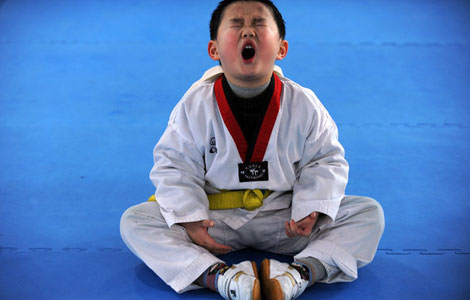Top statistician warns of price increases
Updated: 2012-01-16 19:57
(Xinhua)
|
|||||||||||
BEIJING - China's top statistician Ma Jiantang on Monday forecast lasting pressure from price increases in the world's second largest economy, warning that any policy fine-tuning should help stabilize prices.
Ma, head of the National Bureau of Statistics (NBS), made the remarks in an article published in "Qiushi," or "Seeking Truth," the flagship magazine of the Communist Party of China.
"China is still facing problems impeding its steady and rapid economic growth in the mid- and long-terms," Ma wrote in the article.
The NBS produces China's key macro economic data, including the gross domestic product (GDP) and the consumer price index (CPI), the benchmark gauge of inflation.
Ma said prices are now driven by rising costs of labor, land and resources, while the global market remains flooded with excessive liquidity that has long kept prices of Chinese imports high.
The CPI growth eased to 4.1 percent year-on-year in December and sealed the inflation rate at 5.4 percent in 2011, far-exceeding the government's full-year inflation control target of 4 percent, according to the NBS.
Ma said that as price levels are likely to rebound, China's macro economic policies should be continuous and stable in order to guard against a resurgence in inflation.
Still, China has many "favorable conditions" - such as an accelerating process of industrialization and urbanization - for achieving steady and rapid economic growth in the mid- and long-terms despite developed nations' sluggish recovery and slowing growth among emerging economies.
In the short run, fixed-asset investment, which remains a major engine driving economic growth in China, is expected to maintain rapid growth in 2012, while residential consumption, another growth engine, will keep stable growth this year, he said.
The NBS is to release the GDP data for 2011 on Tuesday. Many economists have anticipated the GDP growth to be around 9 percent last year.
Hot Topics
Kim Jong-il, Mengniu, train crash probe, Vaclav Havel, New Year, coast guard death, Internet security, Mekong River, Strait of Hormuz, economic work conference
Editor's Picks

|

|

|

|

|

|






